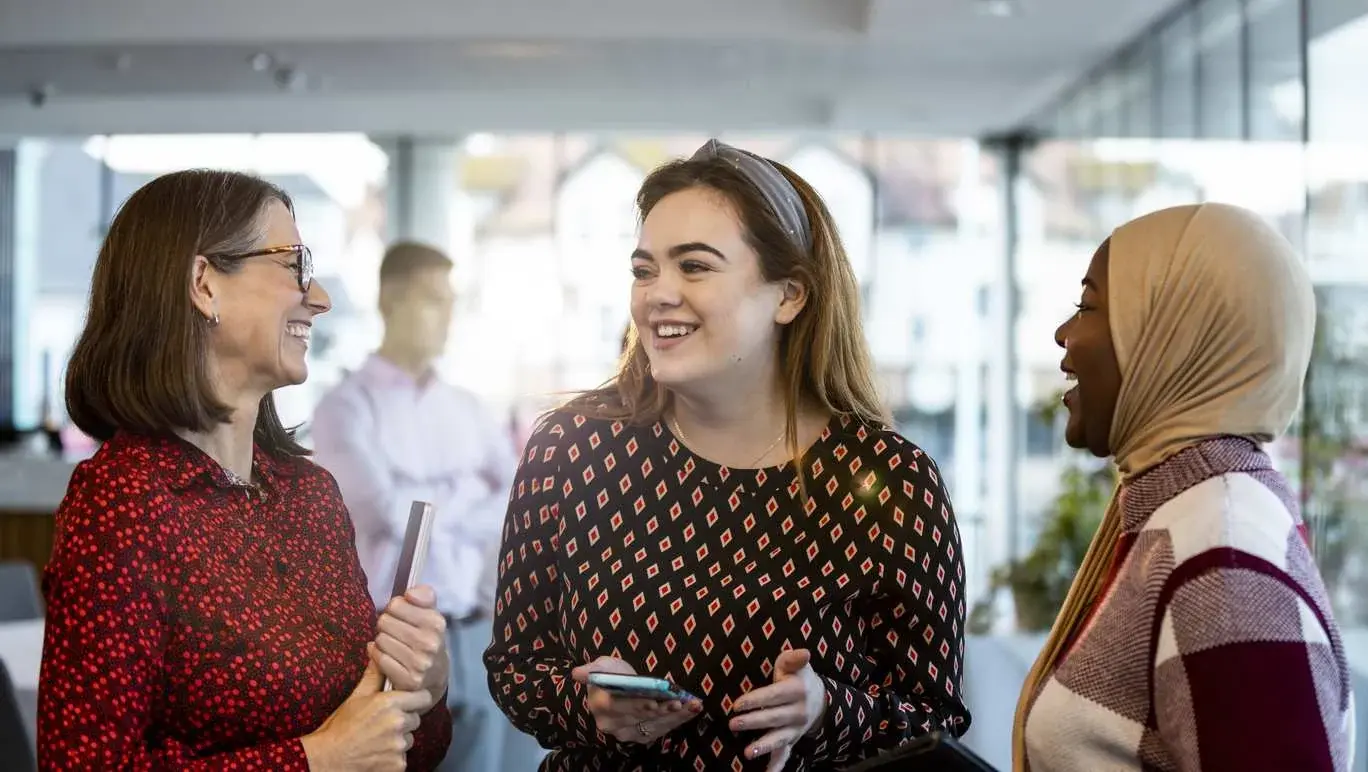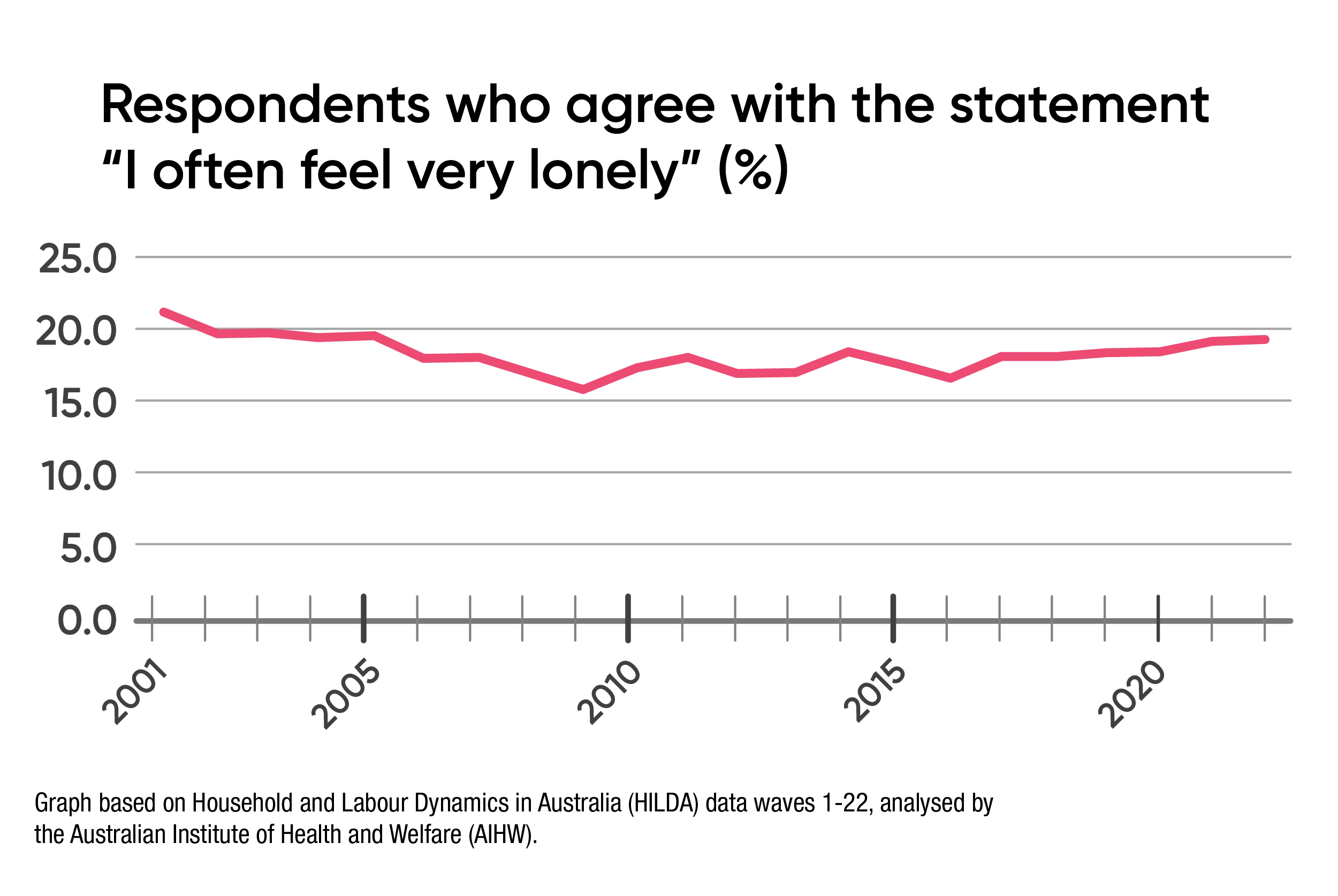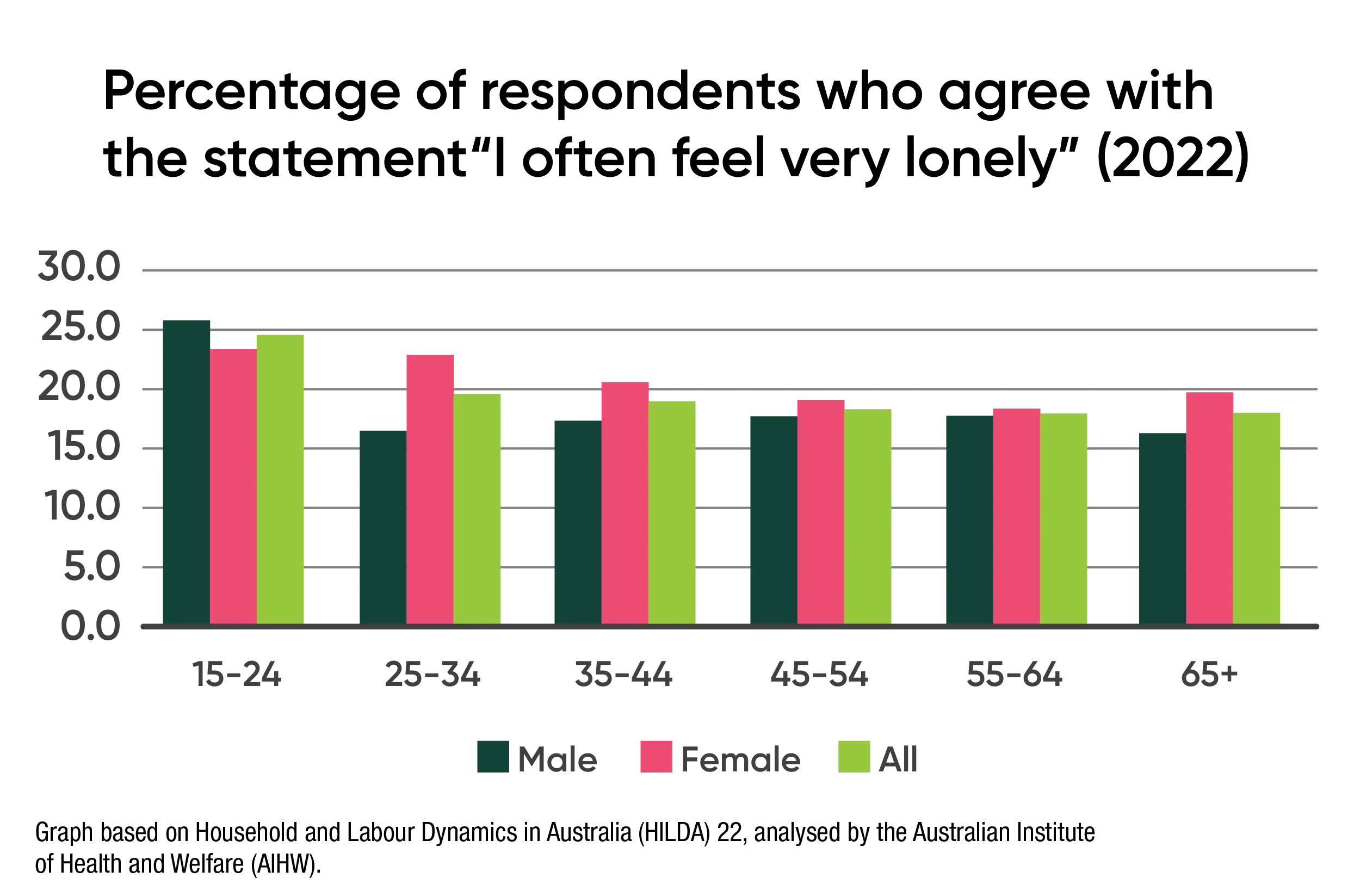Social connection: Why it's important for our health

Did you know that social connection is one of the biggest factors in your overall health? . More than 1 in 5 Australians experience loneliness often, and it’s a trend seen around the world.. Whether you’re young or old,having social connection improves your mental and physical health. Without it, though, the impact can be significant. Let’s dive into why those connections matter more than ever.
What is social connection?
Social connection is a feeling that you belong or having close bonds with others.. It is a fundamental human need. Humans are a social species, and for social species, social connection is linked with survival.
When scientists and health professionals really look into social connection, they break it into 3 parts:
- Social networks – This is about the structure of your connections, living alone or with a partner, and the presence of social networks. Without these, we can feel socially isolated.Feelings of connection – It’s about feeling like you truly belong. People can feel lonely even when they have social networks because they don’t find those connections meaningful.
- Quality of relationships – If your relationships cause stress, they’re not helping you feel connected in a positive way. .
Benefits of social connection
Mental health
Turns out, social connection improves and protects your mental health and can support recovery from mental health concerns. Better social connection protects against low mood, acute stress disorder, burnout and anxiety.
It may also protect your cognitive function, lowering the chance of dementia.
Physical health
Social connection is associated with living longer and having better health. A study of over a half a million people showed that social isolation and loneliness both increase the chance of early death.
The American Heart Association even points out that social isolation and loneliness are independent risk factors for worse cardiovascular health (heart attacks) and brain health (strokes). Plus, poor social connection and loneliness are also linked to hypertension, diabetes, and longer recoveries for those who are ill.
Better social connections can improve the immune system, sleep and health behaviours like diet, smoking, alcohol use and physical activity.
Why social connection is important
Data shows that levels of loneliness have remained mostly stable since 2000.


Both men and women experience loneliness at similar rates, and while younger people report feeling lonely more, it’s something that affects people at every stage of life—and it impacts both mental and physical health.
Public health authorities in Australia and around the world have been pushing for more efforts to improve social connectedness, knowing it can have a huge positive effect on the health of millions.
Ways to increase social connection
Building your current relationships
To improve your social connections you can start by maintaining the relationships you already have. You can do this right now, by calling or sending a message to a friend or family member or arranging a catch up. You can also reach out to people you haven’t spoken to in a while and rekindle your friendship.
Enjoy different kinds of connections
While it’s important to have close bonds with your partner, friends or family, we also get social connection from our entire network of social contacts. Around 40% of people living alone experience loneliness, as do 30% of those living with others. That’s why building your social networks and including casual bonds is important for everyone. This could include people at work, the person who makes your coffee, or the people you meet at the dog park. In fact, having a variety of different sorts of relationships may be as helpful as the amount of time you spend being social.
Meet new people
There are two main ways to find people you may strike up friendships with. The first is repeated exposure, such as running into the same people at a coffee shop, or at the gym or work. This gives you a chance to strike up conversations. So, t going to that dance, painting or woodworking class you’ve been thinking about is not just about learning a new skill, it could be your chance to make new friends.
The second way is through your social circles and friends of friends. They are trusted by people you already trust, and you are likely to have things in common and a built-in connection right from the start.
Volunteering
Part of loneliness is missing a sense of belonging. Volunteering lets you be involved in your community and brings a sense of where and how you belong. If you volunteer for something that’s important to you, you’re meeting people who value that cause too. Volunteering can also be stressful, so consider your own time and energy.
Being positive in social situations
By acting in ways that are based in concern for others welfare or for their benefit, sometimes called prosocial behaviours, we can also benefit. Doing small acts of kindness like greeting people, checking in on friends, bringing someone a drink or sending a thank you message, not only makes others happy, but it increases your happiness and decreases loneliness. Even thanking your bus driver can help you feel a little more a part of your community.
Having pets
Having a pet can help loneliness and improve wellbeing, particularly in those who are socially isolated. Some of this is linked to the emotional attachment with the pet, and it could also be due to things like the exercise of walking a dog – and possibly all the people who think your dog is cute. Having said that, similar results may come with robo-pets (which probably don’t need as much cleaning).
The bottom line
In one of the great ironies, if you feel lonely, you are not alone. Over a billion people world-wide are with you. Being social creatures, the stress of not having social connection can have significant effects on your health. Working on your social connection can positively affect your physical and mental health.
Related reads:
- 7 tips for building and maintaining friendships when you’re busy
- Can social media boost emotional connections with friends?
Reviewed by the healthylife Advisory Board March 2025.
This article is for informational purposes only and does not provide medical advice, diagnosis, or treatment. Any information published on this website or by this brand is not intended as a substitute for medical advice. If you have any concerns or questions about your health you should consult with a health professional.
